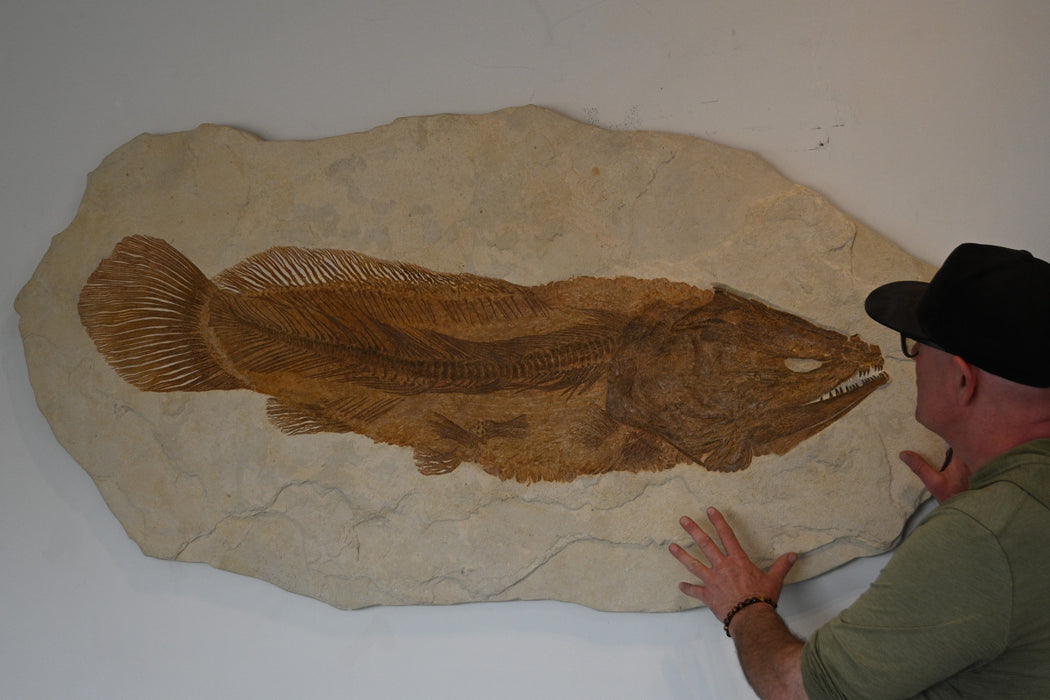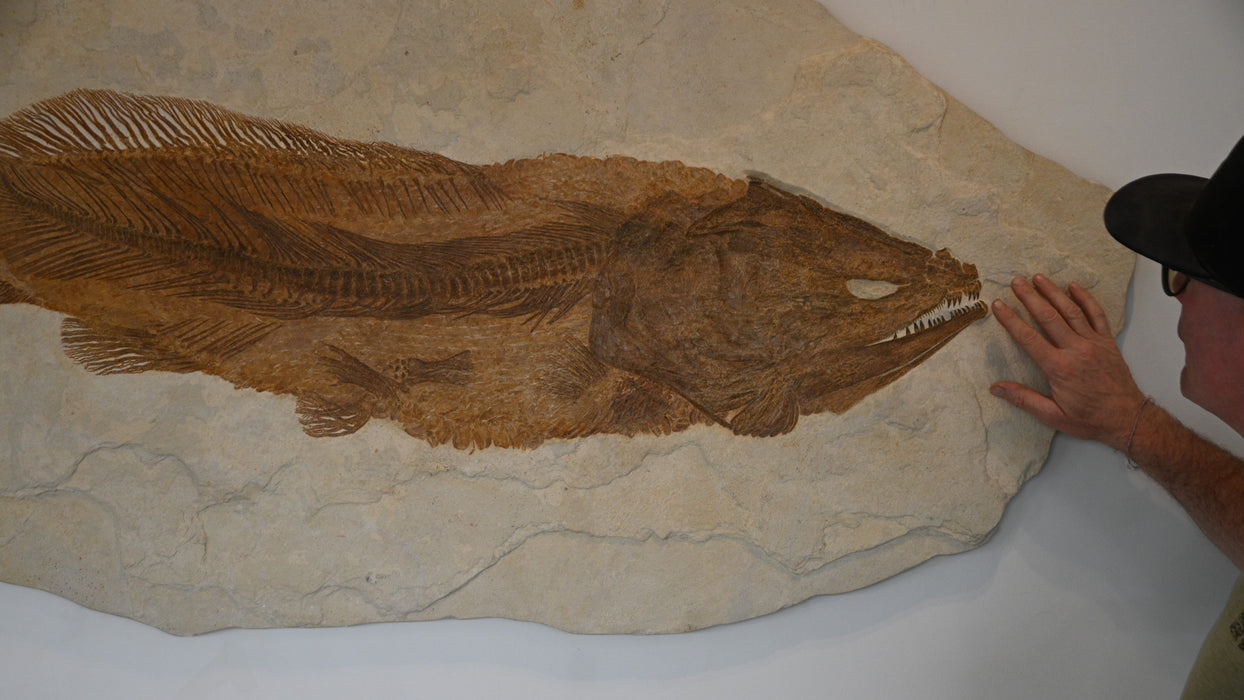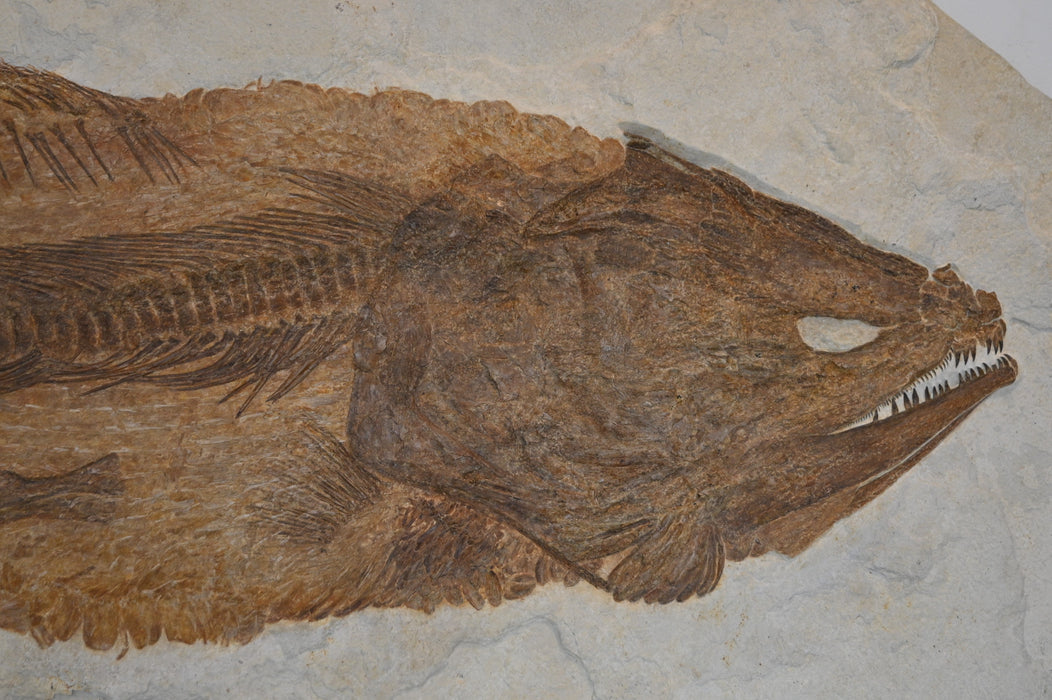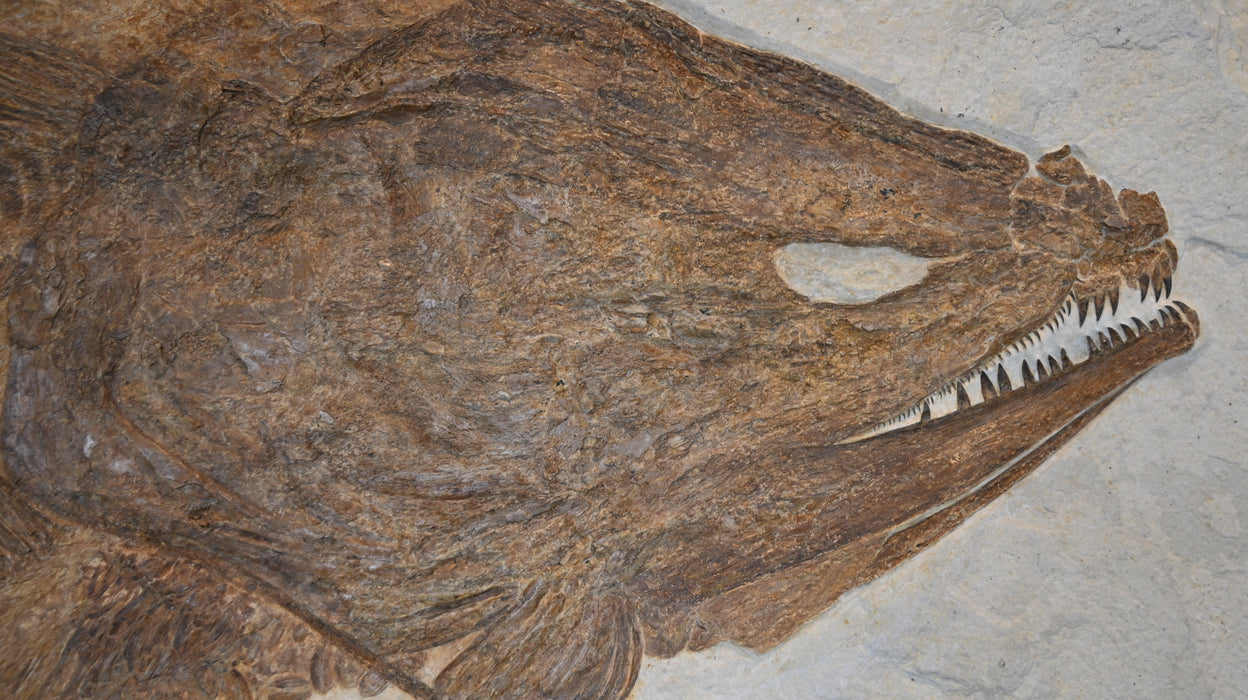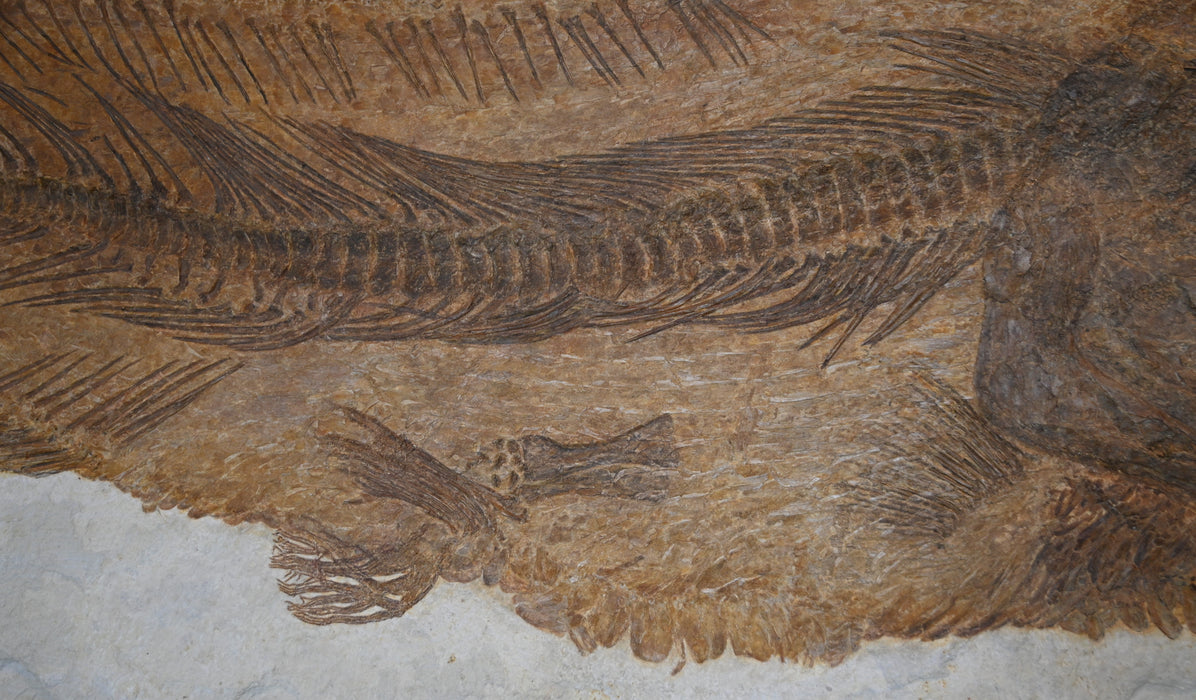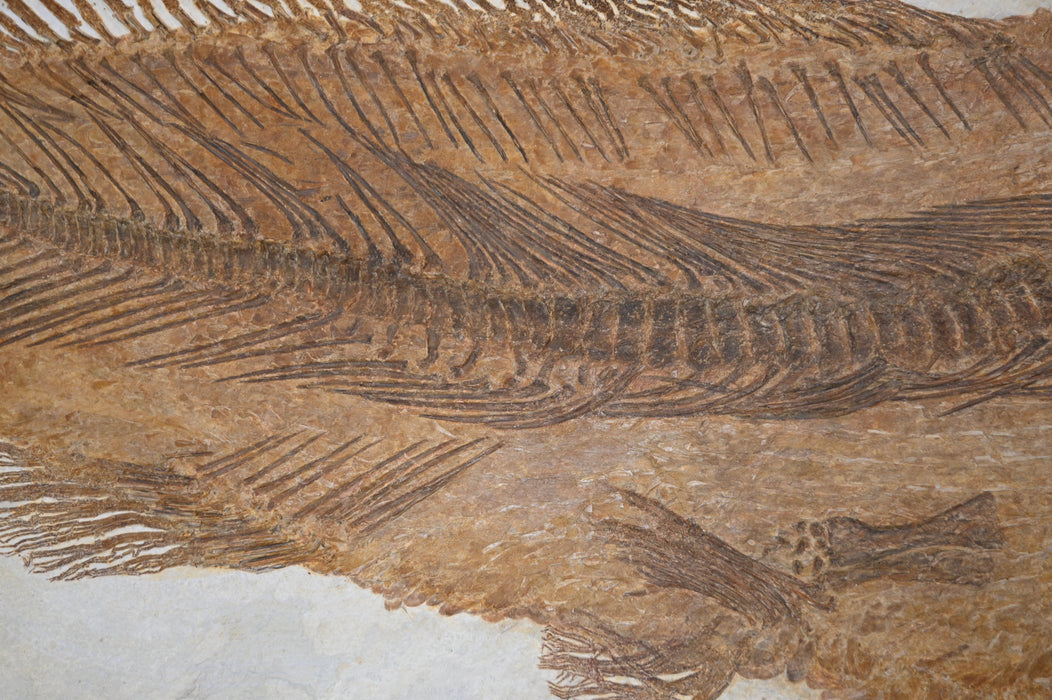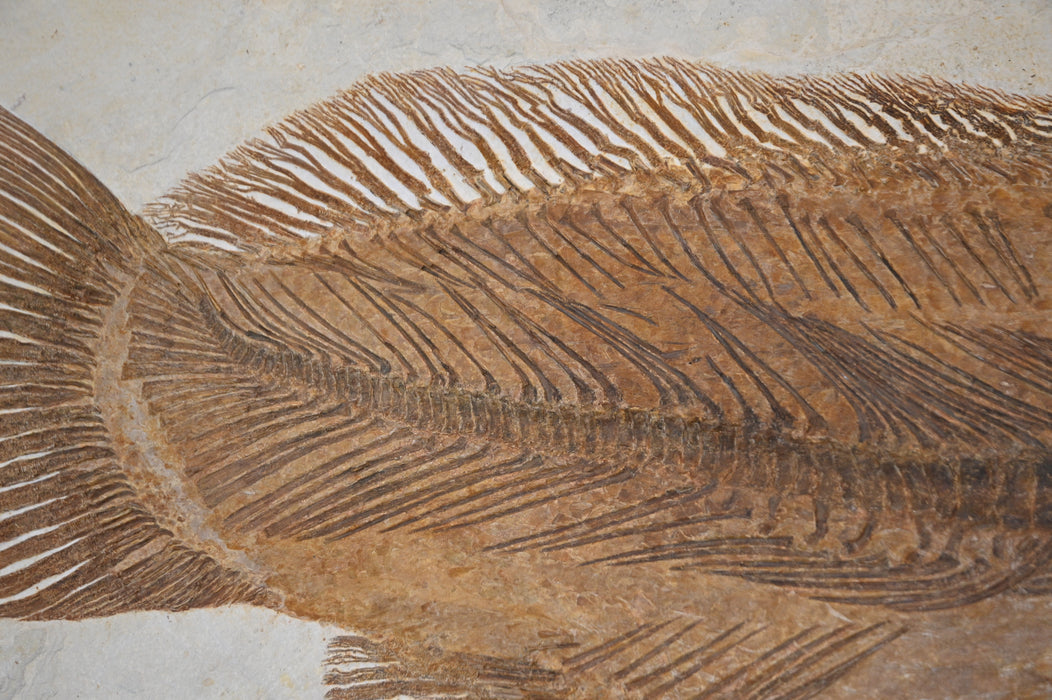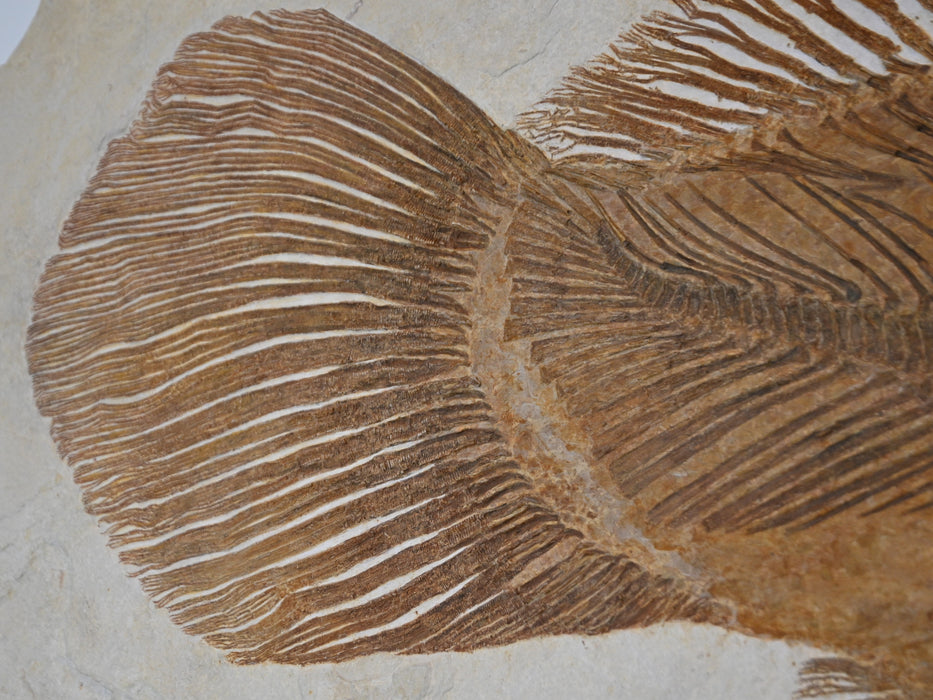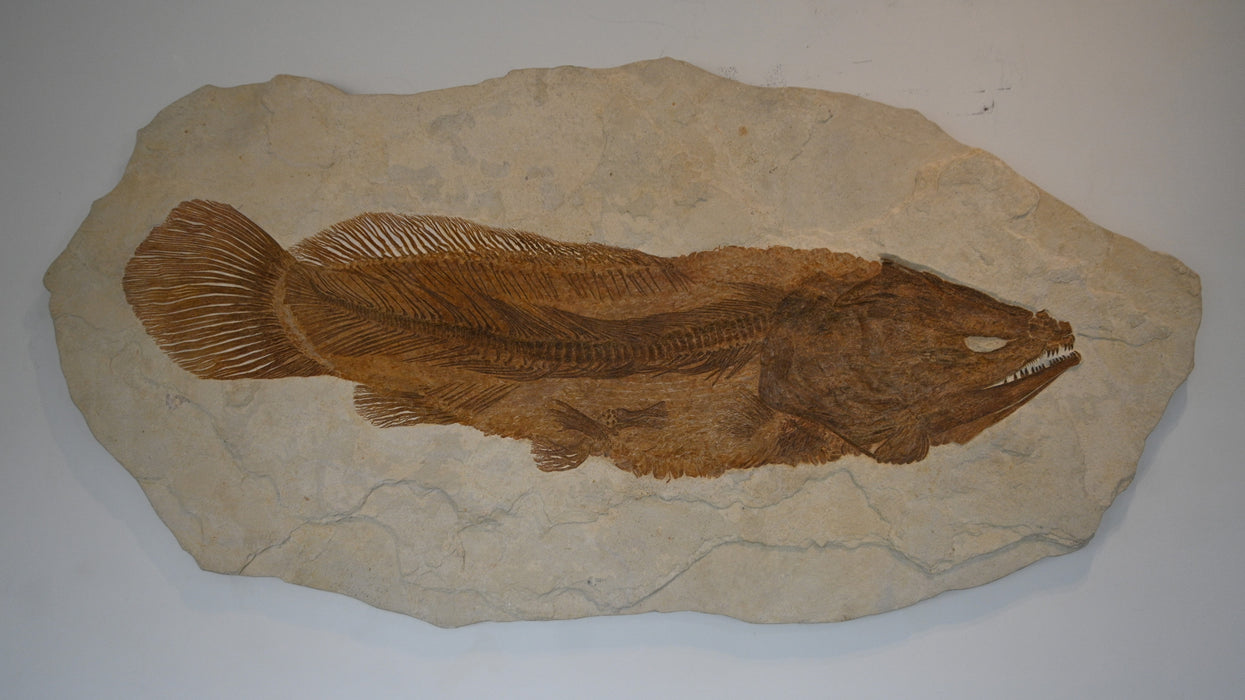
*SOLD* Amia pattersoni | Green River Formation
Amia pattersoni
Eocene (51.98 Million Years Ago)
Green River Formation, Wyoming, USA
Amia approx. size: 51.5"
Plate approx. size: 62.25" x 33"
This specimen has had minimal restoration.
Shipping costs will be calculated and billed after purchase. Please contact us if you need a specific shipping rate prior to purchase. You may opt in for in-store pickup to cut your shipping costs all together and pick up your specimen in person. You can pick up from our store location in Kemmerer, Wyoming, or we deliver to both the Denver Gem & Mineral show in the Fall and the Tucson Gem & Mineral show in the winter. For any questions, please don't hesitate to contact us directly.
Amia pattersoni, an extinct species of bowfin fish, is a member of the family Amiidae, order Amiiformes. This taxon is closely related to the modern bowfin (Amia calva), with which it shares a common ancestor.
Like other members of Amiidae, Amia pattersoni possessed an elongated, cylindrical body with a single long dorsal fin running along much of its back. This feature allowed for undulating movements, similar to its modern relative. The skull was robust, with a well-developed preopercular region and large jaws suited for a predatory lifestyle. Fossil specimens indicate it had strong teeth, suggesting it was a carnivore that preyed on smaller fish and invertebrates. The presence of Amia pattersoni alongside gars and other fish suggests it occupied a similar ecological niche to modern bowfins, acting as a mid-to-top predator in the freshwater ecosystem.
Amia pattersoni provides important insights into the evolutionary history of bowfin fish, demonstrating the long-standing stability of this lineage over tens of millions of years. Its fossils are relatively rare compared to other Green River fish like Knightia or Diplomystus, making well-preserved specimens valuable for researchers and collectors.

